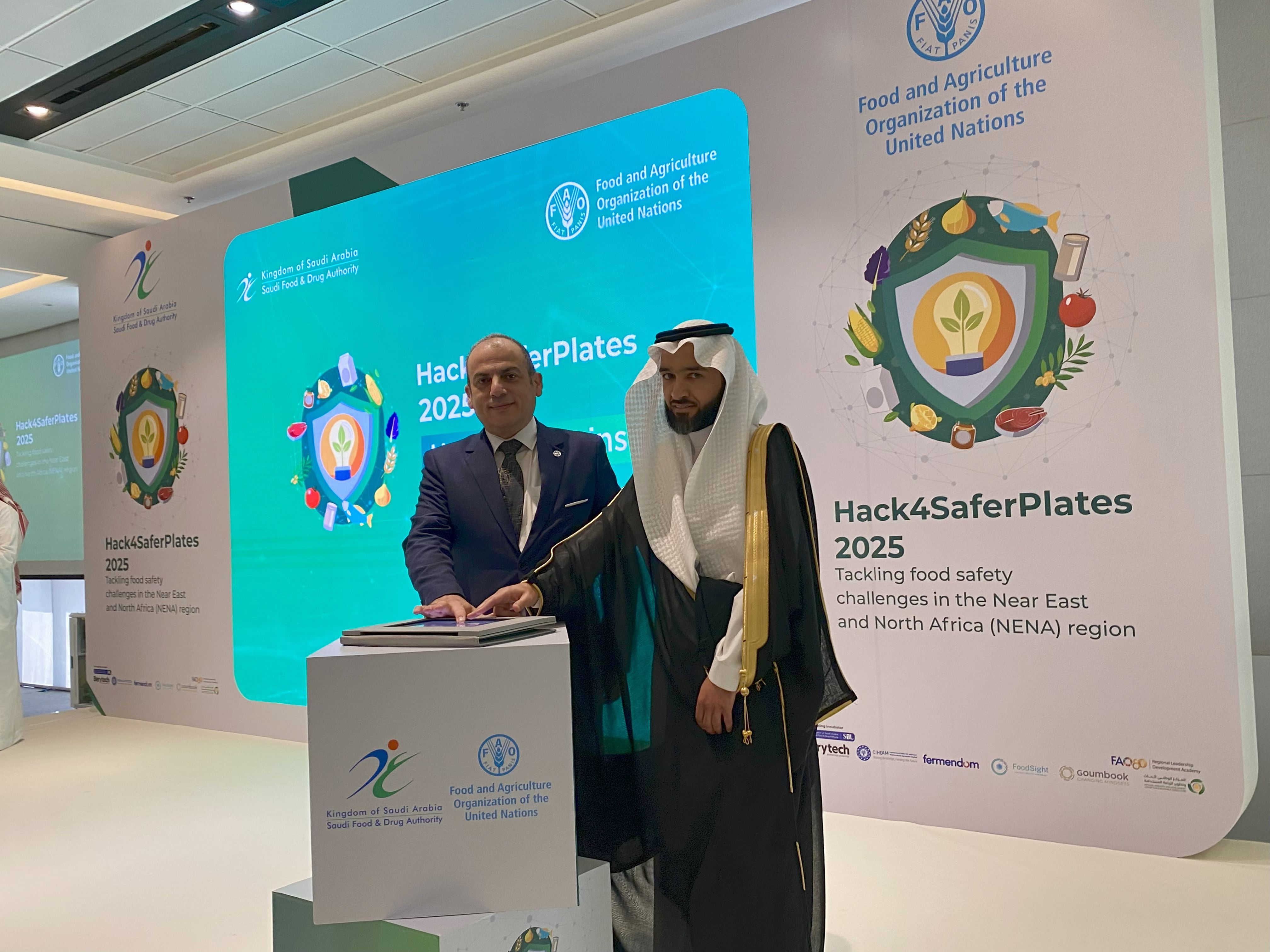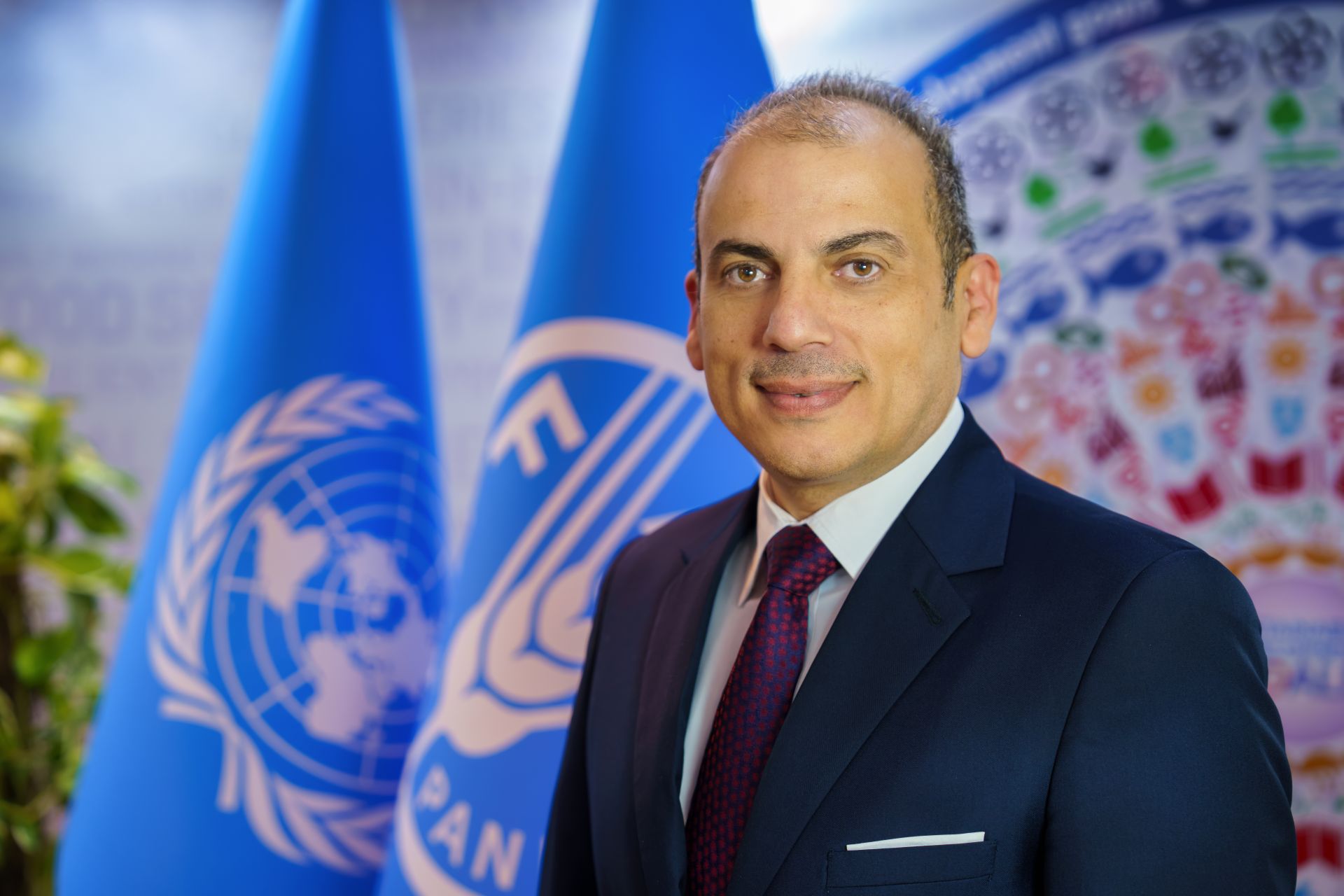Opinions
Hack4SaferPlates:Catalyzing innovations for food safety in the NENA region

©@FAO
In the Near East and North Africa (NENA) region, food safety is key in the transition of our agrifood systems. Millions of people around the world suffer from foodborne diseases annually and over 32 percent of the cases affect children under the age of five years (WHO and World Bank). The financial cost for low-and middle-income countries is more than USD 95.2 billion annually, while both productivity loss and treatment cost are over USD 15 billion annually.
Our region’s weaknesses, high dependency on imports, limited resources and scattered coordination, should drive the importance of investing prevention, preparedness and risk-based management through the whole chain from farm to fork if we are to avoid total collapse.
RFSRIN transforms regionalism into action
Founded by the Food and Agriculture Organization of the United Nations (FAO), South-South and Triangular Cooperation, Regional Food Safety Research and Innovation Network (RFSRIN) promotes collaboration among governments, academia, private sector players and international organizations to strengthen food safety throughout the food chain. It is aimed to improve food security from farm to fork all over the 19 NENA countries; Algeria, Bahrain, Egypt, Iraq, Jordan, Kuwait, Lebanon, Libya, Mauritania, Morocco, Oman, Palestine, Qatar, Saudi Arabia, Sudan, Syria, Tunisia, United Arab Emirates and Yemen. Hack4SaferPlates is a key partner to the mission, driving practical evidence-based solutions, scaling solutions, capacity building and knowledge sharing — building regional resilience and innovation.
Why it’s critical now
Food safety underpins the health and well-being of our communities and the sustainability of our food systems. Addressing current challenges—such as foodborne illnesses and economic losses—requires innovative, collaborative solutions that can be tailored to regional context. By uniting diverse stakeholders, we can accelerate progress in strengthening food safety systems, safeguarding public health, and supporting a sustainable agrifood systems transformation.
Hack4SaferPlates reflected FAO’s partnership with the Kingdom of Saudi Arabia, aligned with Saudi Vision 2030, the country’s commitment in advancing sustainable agriculture, food security, and resilient agrifood systems. Partnering with SFDA ensured that the solutions developed are relevant, practicable and consistent with national and international standards.
The initiative also embodied FAO’s dedication to inclusive development—empowering youth and women, engaging rural communities and promoting equitable participation through capacity building and knowledge exchange. By connecting innovators with cooperatives and local traditional knowledge holders, the hackathon aimed to produce locally relevant, socially inclusive and economically viable solutions.
About Hack4SaferPlates
Hack4SaferPlates is committed to providing safer food for all—safeguarding consumers, minimizing economic losses, and bolstering robust, sustainable food systems throughout the NENA region.
I was honoured and privileged to welcome innovators, practitioners and policymakers to Riyadh for this exciting event. Organized by FAO in partnership with the Saudi Food and Drug Authority (SFDA), Hack4SaferPlates have harnessed the innovative spirit at the SFDA headquarters on 9-10 September 2025.
Convened under the umbrella of RFSRIN, this hackathon aimed to promote regional practical cooperation, bringing together science, technology and evidence-based solutions to address the most critical food safety challenges that are relevant to our region.
Hack4SaferPlates: A launchpad for innovation
Hack4SaferPlates was more than a two-day event—it was a catalyst for transformative ideas that created a dynamic environment to reshape food safety in the NENA region. The hackathon was designed to accelerate ideas into actionable prototypes through two complementary tracks:
Technology Track: Focuses on leveraging cutting-edge tools like artificial intelligence (AI), blockchain for traceability, real-time monitoring, IoT and early warning systems to enhance risk detection and management for food safety. Participants might develop AI-driven tools to detect mycotoxins or IoT-based platforms to ensure supply chain transparency.
Policy Track: Concentrates on designing innovative policy and regulatory frameworks to strengthen governance, promote a circular economy, reduce food loss and waste, and improve coordination of standards and compliance.
We focused on impact, not perfection. By convening cross-cutting teams that include coders, scientists, food safety experts, private sector executives, entrepreneurs and policymakers, the prize required solutions to be not only localized but also built for the NENA region.
A platform for impact
Hosting Hack4SaferPlates at SFDA headquarters in Riyadh underscores Saudi Arabia’s leadership in agrifood transformation and its commitment to advancing food safety standards. The partnership ensured solutions developed are grounded in regulatory realities and regional priorities.
Winning teams will gain access to a six-month incubation programme to refine their prototypes for scalability and adoption. In October 2025, top teams will present their solutions at FAO’s Science and Innovation Forum (SIF) 2025 in Rome, gaining global visibility. Additional prizes, including cash awards, scholarships, internships, and access to RFSRIN’s extensive network of researchers and innovators—will further support their journey.
Advancing RFSRIN’s Vision
As a flagship RFSRIN initiative, Hack4SaferPlates champions:
- Strengthened regional collaboration and knowledge exchange.
- Science- and evidence-based approaches, including real-time monitoring and One Health strategies.
- Sustainable business models through public-private partnerships.
- Innovative solutions to support agrifood system transformation.
Addressing Regional Challenges
We acknowledge persistent gaps in data, research uptake and inter-institutional coordination challenges in NENA. Hack4SaferPlates promotes local, scalable solutions—from predictive analytics and outbreak prevention to regulatory reform—while keeping inclusivity at heart via pre-event 'pre-labs' with partners such as UM6P and OCP ecosystems. These interventions are meant to actively involve cooperatives, traditional knowledge holders and communities so as to include rural and pastoral areas in the design of the solutions.
Beyond the hackathon
An open regional learning and incubation space will help the transfer and integration of the good work carried within the frameworks of winning prototypes at the national level, through partnerships with ministries, local authorities and organizations such as ONSSA (National Office of Food Safety), INDH (Moroccan National Human Development Initiative ) and CRI (Regional Investment Center of Casablanca Settat). This model also enables innovative solutions to be scaled from pilot to deployment. Through innovation investment and strategic partnership development, Hack4SaferPlates aims to achieve safer food for all – keeping consumers safe, mitigating economic losses, and enhancing the resilience, sustainability, and the safety of agrifood systems in the NENA region.

By: Dr. Nizar Haddad
FAO Programme Director – Saudi Arabia
